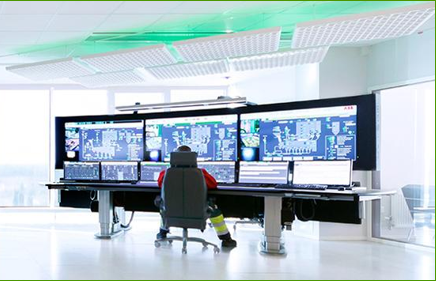The tax burden on the Catalan cement factories has been the subject of debate at the meeting that representatives of the sector held last April 15 with the Secretary of Finance (and president of the Tax Agency of Catalonia), Marta Espasa, and the Director General of Tributes of the Generalitat, Natàlia Caba. Managers of the Ciment Català employers’ association, and representatives of the CCOO and UGT-FICA trade unions and of the CEMA Foundation in Catalonia, transferred to the Generalitat the difficulties and risks for the industry of the application of certain fiscal policies that increase the pressure on the sector of the cement, as the development of the eleventh final provision of Law 16/2017 on Climate Change relative to a tax on economic activities that generate greenhouse gases (GHG).
Trade unions and companies reported that the imposition of taxes on CO2 emissions, superimposed on the market mechanism decided by the European Union and affecting the cement sector, would put most factories at the limit of survival. Among the arguments that demonstrate the inability to take on this new fiscal effort were cited, on the one hand, increases in the price of emission rights, which touched 26 euros per ton during the past month of April, almost 5 times more than € 5 per ton of recent years, and it is not foreseeable that it will fall again given the measures taken in this regard at European level. On the other hand, it was recalled that the fact that the companies in the sector are multinational with manufacturing plants in several countries, among which some that are not subject to the GHG market regime, can cause the relocation of the production of the factories Catalan This will not only stop collecting any type of tax for industrial processes, but predictably will generate unemployment and loss of economic activity in the populations where they are now installed.
At the heart of the debate also lies the protection of the environment. In theory, the legislative initiatives that seek to impose rates on GHG emissions are considered a stimulus to the reduction of emissions. In practice, however, its infeasibility would have the opposite effect: with the stoppage or closure of Catalan factories would increase CO2 emissions, since we would have to add the transport from third countries, often with facilities more polluting than Catalan factories , which originates during manufacturing, which would be maintained wherever the cement is produced.

